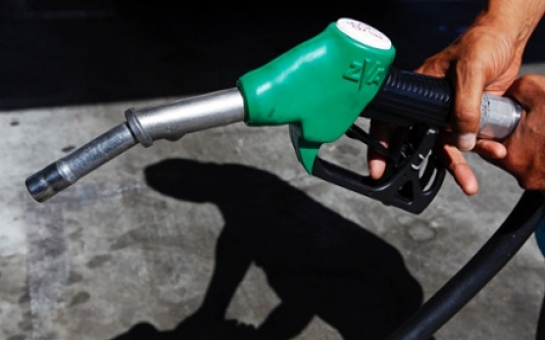Without family payments, it would've been much harder to get by on my taxi driver dad's up-and-down income. When he was briefly unemployed, Newstart got us through. Some would say that maybe without those payments nothing much would've been different for me in the long run; things might’ve just been a bit less comfortable for a while. I don't think so. I think that without income support, it's unlikely that I would've done well in school. I might not have stayed in school.Without Youth Allowance, it would have been hard to go to university. I had a job as well, but it's not really possible to support yourself on 16 hours of petrol station work. Millions of Australians have similar stories of times when the safety net was there for them when something bad happened (like unemployment) or can recall times when a top-up to their wages (through family payments or Youth Allowance) suddenly made things possible that before were out of bounds.Usually when we hear about the welfare system, the focus is on the negative: the budgetary cost, the “unsustainable” number of recipients, or the small number of “bludgers” or “rorters” who obtain payments through fraud or deception. But we forget that these payments exist for a reason – to share risk, to protect from poverty, to help people who need it. No one ever ran a front page story to announce the fact that a single mum was able to buy school shoes thanks to family payments, or that disability support helped someone live independently without relying on charity, but those hidden human stories are out there and too often forgotten.This might be at risk now, threatened by Kevin Andrews’ determination to reform the system. The social services minister warns that Australia might end up like crisis-ridden European countries if we don’t change trajectory on welfare policy. I don’t think the facts support his grave warnings.The minister seized upon a statistical report from his department that showed a little over 5m people – more than one in five Australians – received an income support payment in 2012. Crisis! Well, not really. The same report shows that 10 years earlier, in 2002, 4.86m people received a payment. Over that 10 year period, the number of people on welfare rose by 174,000, but the Australian population rose by 3.2m. The proportion of the population on income support fell from 24.9% to 22.1%.By far the most prevalent payment is the Age Pension, with 2.2m recipients. When you take age pensioners out of the picture, that leaves 12.1% of the population on an income support payment. That’s lower than in any year of the Howard government. If we’re in crisis now, the crisis must have been more acute in the early 2000s.We spend less on welfare (by which I mean cash payments to households) than just about any other advanced economy. Last year we spent 8.6% of our gross domestic product on welfare. That’s less than Canada (9.1%), less than the US (9.7%), New Zealand (9.8%), the UK (12.2%), and every other member of the EU. Even in 2005, well before the financial crisis sent unemployment soaring in most OECD countries, our welfare spending was below all of these countries, including the infamously frugal US.At this point, a welfare critic might respond that while our overall spending is low, there’s still room to cut without causing too much pain, simply by rolling back “middle class welfare.” This is one of those zombie ideas that refuse to die. Our welfare system is far more targeted towards low-income people than the system of any other advanced economy, and has become more targeted over time. We use means testing much more aggressively than any other country. While it’s always possible to tinker around the edges, it’s just not true that there’s a lot of middle-class welfare to cut.Our problem, to the extent we have one, is that our governments don’t collect enough tax. We’re one of the very lowest taxing advanced economies in the world, with revenues about $30 billion a year lower than they were when John Howard left office. Unsustainable tax cuts, skewed to the well-off, are a big part of that revenue problem. The current approach seems to be to shovel money out the door to high-income earners, then declare a fiscal crisis, and balance the budget on the backs of the poor by cutting income support.If we go down that track, Australia will slowly become a very different place. Income support helps to make talk of “equality of opportunity” more than just a hollow charade. It won’t be possible to roll back the welfare state without harming the poor and making social mobility a less likely prospect in the future.(theguardian.com)ANN.Az
Without welfare, my life would be different. Maybe yours too
Society
14:45 | 31.01.2014

Without welfare, my life would be different. Maybe yours too
My life would be very different without the Australian welfare state. Mine isn’t a dramatic story of deprivation by any means, just a mundane series of times when the system has been there when I needed it.
Follow us !










